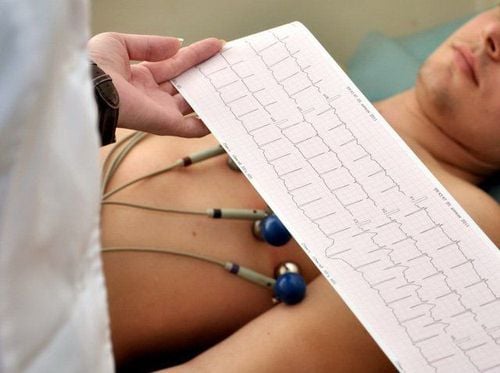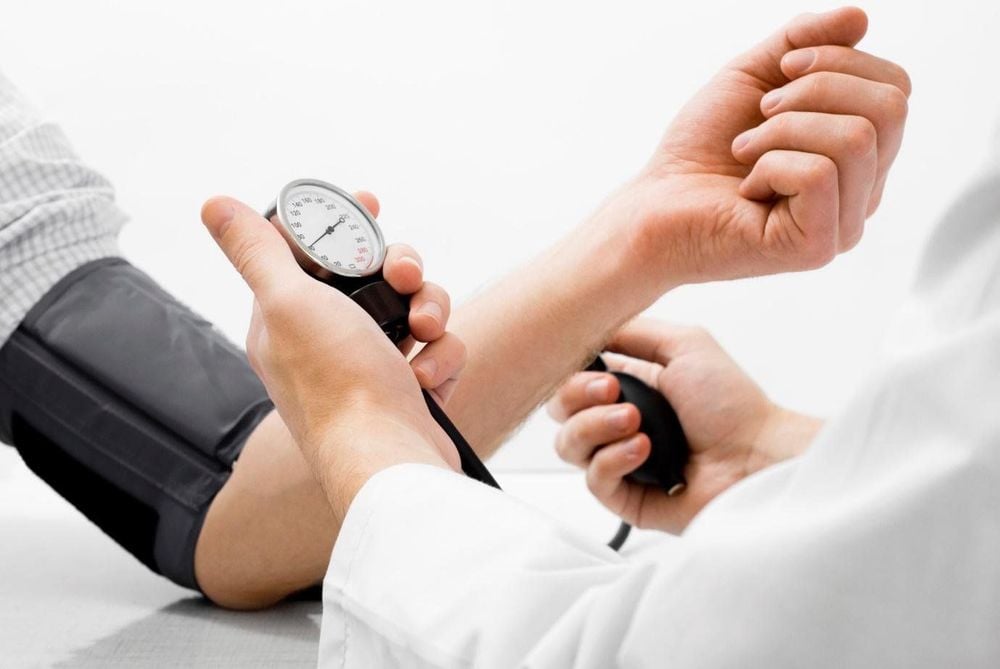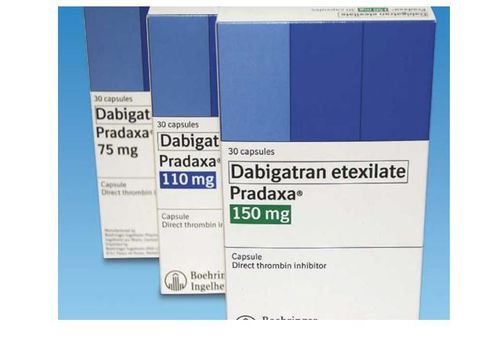This is an automatically translated article.
The article is professionally consulted by Master, Doctor Pham Van Hung - Department of Medical Examination & Internal Medicine, Vinmec Danang International General Hospital.Currently, the prevalence of atrial fibrillation in the population is about 0.4%, this rate increases with age. Atrial fibrillation causes many cardiovascular events, causing death or lifelong disability, and treatment methods are still limited and difficult. Therefore, the issue of stroke prevention in patients with atrial fibrillation is also of great concern.
1. What is atrial fibrillation?
Atrial fibrillation is one of the top three non-communicable diseases in the world (along with heart failure and diabetes). This is the most common arrhythmia. Patients with atrial fibrillation have a 3-5 times increased risk of stroke, 3 times the risk of heart failure, and a 1.5 to 3 times increased risk of death.Atrial fibrillation is a supraventricular tachyarrhythmia characterized by asynchronous atrial activity with impaired atrial mechanical function.
About 30% of atrial fibrillation is thought to be idiopathic, meaning there is no cause. Risk factors include: advanced age, male sex, alcohol consumption, thyroid dysfunction, diabetes mellitus, hypertension, valvular heart disease,...
2. Symptoms and diagnostic tests of atrial fibrillation
Some patients with atrial fibrillation have no symptoms or only transient manifestations (11%). The most common symptoms of atrial fibrillation:Tests applied in the diagnosis of atrial fibrillation today:
Electrocardiogram: With signs of loss of P waves, replaced by f waves with a frequency of 400-600 times /min Echocardiogram

3. Guidelines for the management of patients with atrial fibrillation
Three main purposes in the treatment of patients with atrial fibrillation:a) Control the ventricular rate: digitalis drugs, beta-blockers, calcium channel blockers.
b) Conversion of arrhythmias to normal sinus rhythm:
Amiodarone, Ibutilide (new drugs) Electroconvulsive cardioversion: An option indicated when the patient has received a full dose of anticoagulation, this is an effective method. to correct arrhythmias. c) Anticoagulant treatment to prevent stroke and atrial fibrillation: Vitamin K antagonists, Heparin.
Depending on the type of atrial fibrillation, the accompanying diseases have different treatment.
Some other treatment methods in facilities with interventional cardiology:
Permanent pacemaker placement: is selected when the patient has failed or poorly responds to drug therapy or the ventricular rate is slow ( less than 60 beats/min) Catheter ablation of atrial fibrillation Surgery (applied at a facility with a cardiac surgery center)
4. Risk of stroke in patients with atrial fibrillation
Ineffective contraction of the atria reduces the filling of the ventricles causing blood stagnation leading to the formation of blood clots in the left heart. The main cause of stroke complications in patients with atrial fibrillation is the blockage of blood vessels supplying the brain with blood clots.Researchers have developed a scale to assess the risk of thromboembolic stroke in patients with atrial fibrillation including the CHADS2 and CHA2DS2-VASc scores.
We can refer to the risk factor components in the scale so that we can better prevent and screen diseases:
Age: ≥75 Gender: female History of stroke, ischemic transient (TIA) or embolism Comorbid medical conditions: Heart failure, Hypertension, Diabetes, other vascular disease.

5. Stroke prevention in patients with atrial fibrillation
The goal of treatment for atrial fibrillation is to prevent complications caused by atrial fibrillation: because atrial fibrillation is prone to the formation of blood clots that can travel into the circulation and throughout the body, leading to embolism, the most common of which is atrial fibrillation. cerebral vascular accident.Anticoagulants have a blood-thinning mechanism, which has been shown to reduce the likelihood of thrombosis in patients with atrial fibrillation, conversely, it increases the risk of bleeding in the patient, so each anticoagulant has a potential Some of the recommended anticoagulants for stroke prevention include:
The vitamin K antagonist (VKA) anticoagulants Dabigatran, Rivaroxaban or Apixaban VKA are recommended for use in patients taking using an artificial heart valve. So what can patients with atrial fibrillation do to actively care for and improve their health?
A healthy diet is essential: limit the intake of foods high in saturated fat, reduce salt intake, eat more fresh fruits, vegetables and whole grains. Physical training methods: daily exercises, physical strengthening really bring significant effects, especially for patients with risk factors from other cardiovascular diseases. Quit smoking, quit drinking alcohol and other stimulants harmful to the heart in particular and the whole body in general. If the patient has concomitant cardiovascular diseases, it is necessary to take medicine regularly, control blood sugar, blood pressure and blood cholesterol level. Regular follow-up and examination for early screening as well as timely treatment. Thus, the prevention of stroke in patients with atrial fibrillation is one of the issues of concern to protect the patient's health, while minimizing serious complications, even death. caused by stroke.
Vinmec International General Hospital is a high-quality medical facility in Vietnam with a team of highly qualified medical professionals, well-trained, domestic and foreign, and experienced.
A system of modern and advanced medical equipment, possessing many of the best machines in the world, helping to detect many difficult and dangerous diseases in a short time, supporting the diagnosis and treatment of doctors the most effective. The hospital space is designed according to 5-star hotel standards, giving patients comfort, friendliness and peace of mind.
If you have a need for consultation and examination at Vinmec Hospitals under the national health system, please book an appointment on the website for service.
Please dial HOTLINE for more information or register for an appointment HERE. Download MyVinmec app to make appointments faster and to manage your bookings easily.














